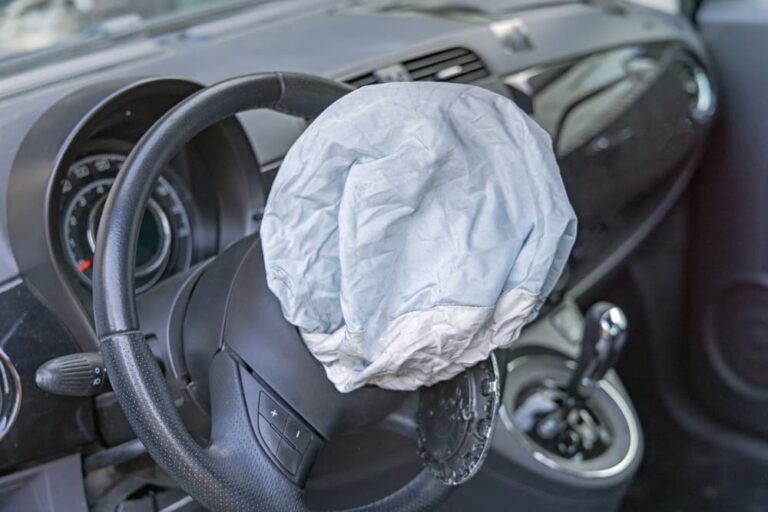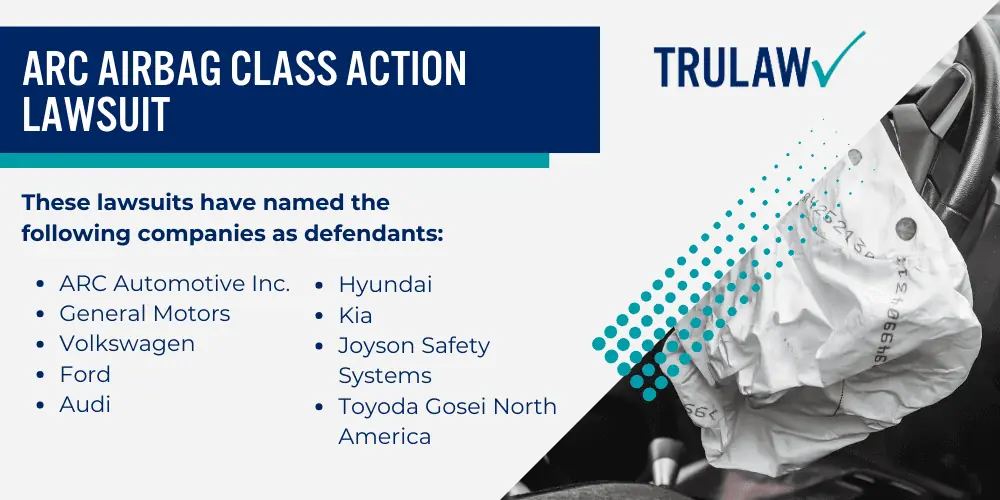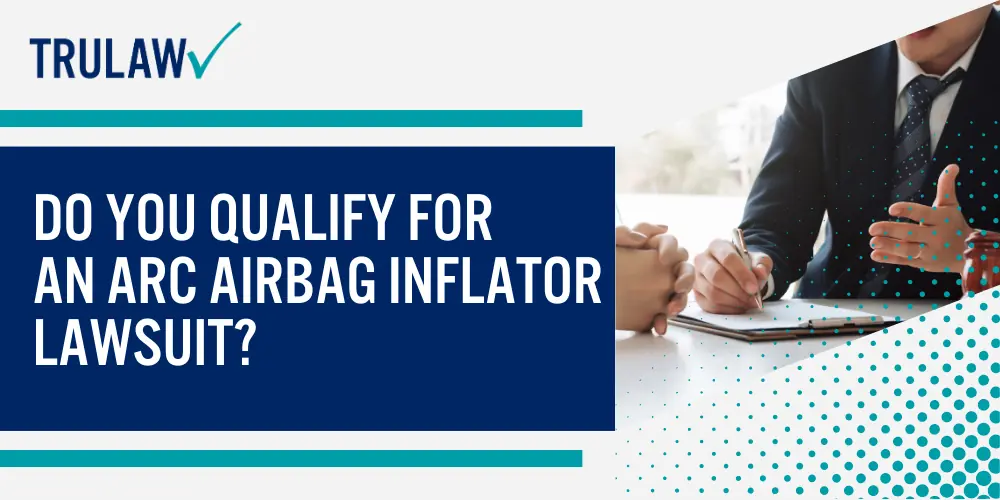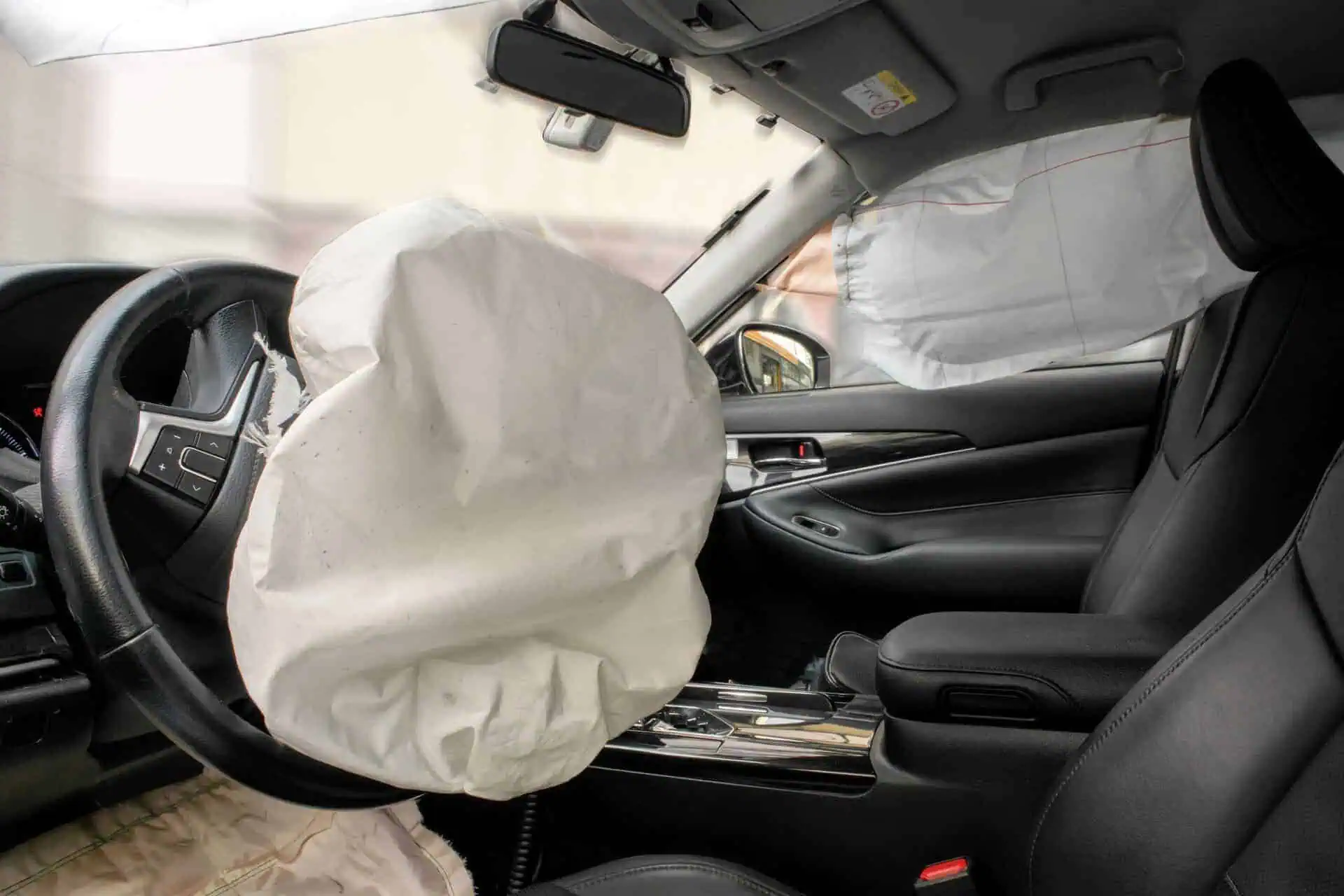ARC Airbag Lawsuits can be filed on behalf of individuals who were injured or killed by metal fragments or shrapnel expelled from defective airbag inflators.
These airbag inflators are present in a number of vehicles produced by the most popular car brands – an estimated 51 million vehicles on the road have ARC airbag inflators installed.
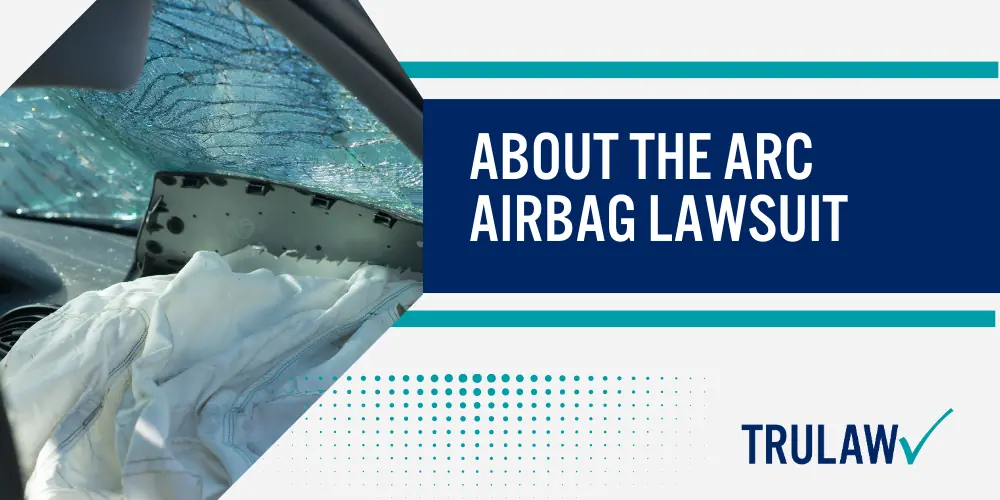
ARC Automotive Inc. is a global manufacturer of airbag inflators, supplying millions of vehicles with vital pieces that ensure airbags deploy when a driver is in an accident.
Though they are a safety company first and foremost, their defective products have unfortunately resulted in at least two deaths and countless injuries.
What’s Wrong with the ARC Airbag Inflators?
ARC Airbag Inflators, substantially similar to the Takata Airbags that injured and killed dozens of people, use ammonium nitrate as a secondary propellant to fill airbags upon collision.
Ammonium nitrate is a volatile and unstable chemical that can explode when put under extreme heat or pressure.
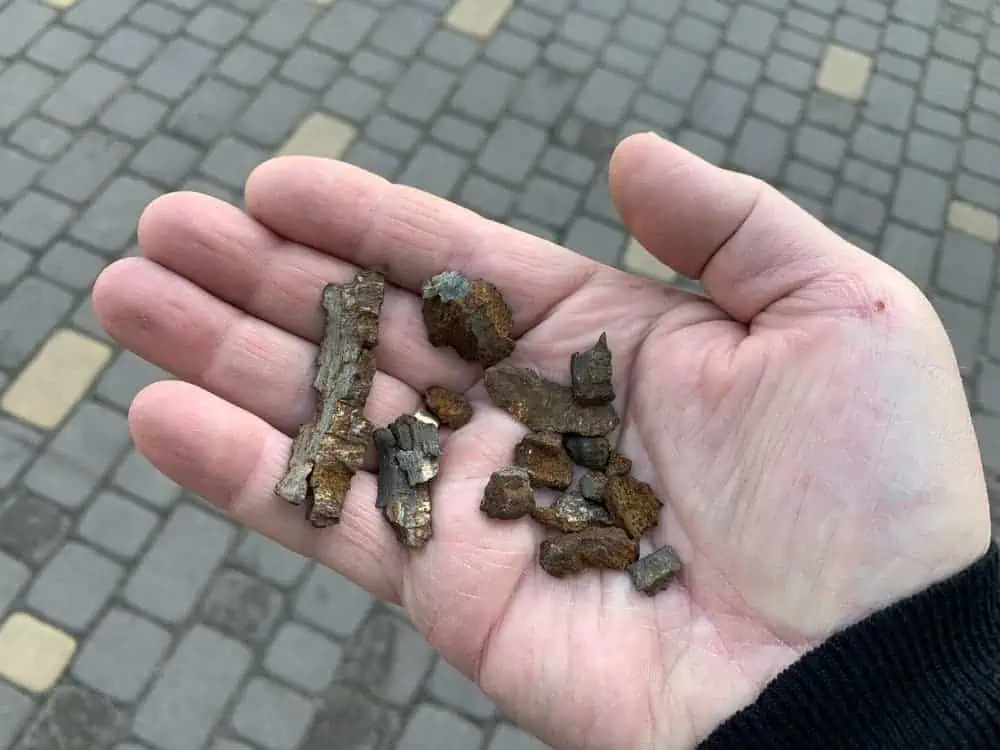
Ammonium nitrate has been used as a propellant, in explosive materials, in fertilizers and herbicides, and in countless other industrial applications for decades.
When deployed in a car accident, the airbag inflator has the potential to explode and send metal fragments into a vehicle’s cabin due to the unstable ammonium nitrate contained in the canister.
Both in accident reports and internal testing, ARC Automotive and the National Highway Traffic Safety Administration (NHTSA) have found that ammonium nitrate is a dangerous chemical to use for airbag inflators and can injure or kill vehicle occupants even in minor collisions where people are not expected to be seriously injured.
Have ARC Airbag Inflators Been Recalled?
Despite the numerous reported issues and injuries and deaths associated with the exploding inflators, ARC Automotive has not been subject to a widespread recall that includes the entire fleet of vehicles with them installed.
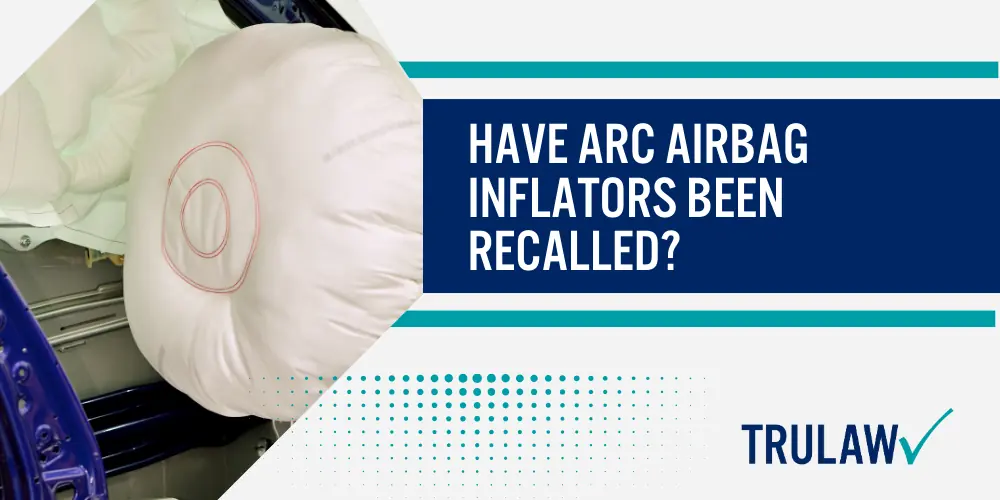
There have been three limited recalls on certain vehicle models with ARC Airbag inflators, affecting a couple thousand of the tens of millions of cars that have been known to use ARC inflators.
ARC Airbag Inflators Linked to the Deaths of Two People
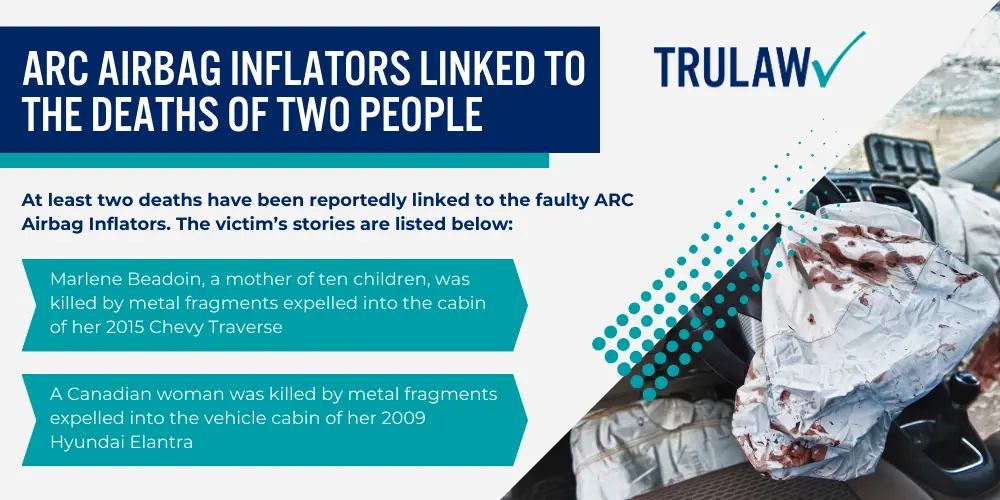
At least two deaths have been reportedly linked to the faulty ARC Airbag Inflators. The victim’s stories are listed below:
- Marlene Beadoin, a mother of ten children, was killed by metal fragments expelled into the cabin of her 2015 Chevy Traverse when involved in a relatively minor accident in Michigan’s Upper Peninsula. A wrongful death lawsuit was filed on her behalf against ARC Automotive, General Motors and Toyoda Gosei North America.
- A Canadian woman was killed by metal fragments expelled into the vehicle cabin of her 2009 Hyundai Elantra. This 2016 accident was said to be at low speeds and would not have resulted in major injuries or death if it hadn’t been for the defective ARC airbag inflator.
